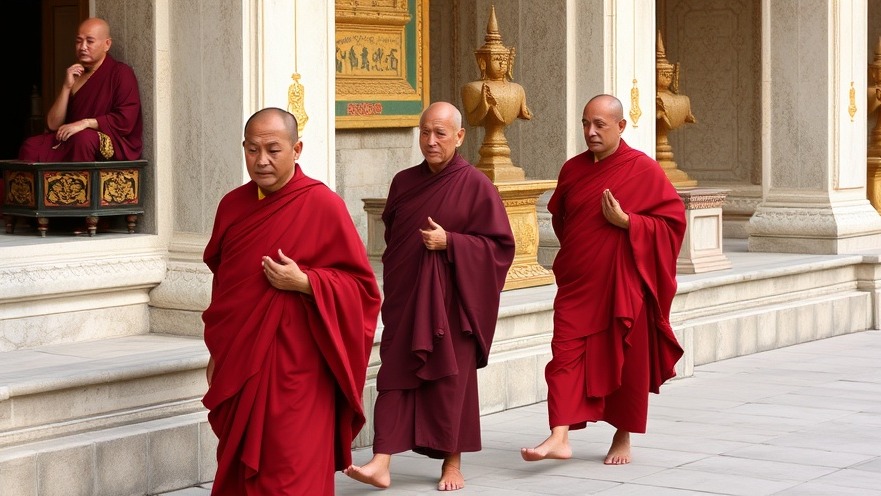
Scandal Erupts in Thailand: Monks and Misconduct
Thailand is no stranger to controversies involving Buddhist monks, but the recent arrest of a woman for allegedly seducing and blackmailing prominent monks has sent shockwaves through the nation. Wilawan Emsawat, in her mid-30s, is accused of enticing monks into sexual relationships before extorting them for money to keep their indiscretions secret. This situation has raised serious questions about the financial practices within Thai monasteries and the integrity of the religious institutions.
Background: A Disturbing Trend
Over the years, scandals involving monks have surfaced periodically, often involving lower-ranking members of the clergy. However, the current case shines a bright light on the behavior of senior monks and abbots. Reports indicate that Wilawan specifically targeted these high-ranking individuals for financial gain, capitalizing on their vulnerabilities as they are expected to live austere lives according to their religious vows.
The Implications of Celibacy and Ethics
Theravada Buddhism, the dominant sect in Thailand, mandates celibacy for its monks, who are also instructed to avoid physical contact with women. This ethical standard presents a stark contradiction to the relationships that were allegedly fostered by Wilawan. With at least nine high-ranking monastics having been disrobed and cast out, this scandal challenges not only the individual moral compass of each monk involved but also poses broader implications for the credibility of monastic institutions across the country.
Financial Misdeeds: From Donations to Gambling
One of the most unsettling aspects of this scandal is the financial transactions involved. According to police investigations, Wilawan’s accounts received approximately 385 million baht ($11.9 million) over the span of three years, with a significant portion directed towards online gambling. This shocking detail raises questions about the management of temple funds and whether the money donated by laypeople is being used as intended or exploited for personal profit.
Law Enforcement's Response and Future Directions
Following the revelations, authorities, including Acting Prime Minister Phumtham Wechayachai, have begun reviewing existing laws governing monks and temples. The need for stricter regulations to safeguard against such manipulations is clear. Investigators have stated their belief that Wilawan poses a danger, necessitating prompt action—a sentiment echoed by many in Thai society.
Public Reaction: Trust in Monastic Institutions Eroding
The public response to this scandal has been one of shock and disappointment. Many people who donate to temples out of faith and reverence are reevaluating their support in light of these allegations. This scandal has sparked discussions about transparency and accountability within religious institutions, pressing the need for a reevaluation of ethical standards among monastic leaders.
Conclusion: A Call for Reflection and Reform
The unfolding events surrounding Wilawan Emsawat and the implicated monks compel a broader conversation about morality, trust, and reform within the Buddhist community in Thailand. As this case progresses and more details come to light, the need for collective reflection on the intersection of faith, ethics, and financial responsibility is imperative.
In a nation deeply rooted in its spiritual practices, the fallout of this scandal serves as a reminder of the vulnerabilities that exist within cherished institutions. As the community seeks healing and accountability, now is the time to engage in meaningful dialogues and push for change within religious leadership.
 Add Element
Add Element  Add Row
Add Row 



Write A Comment